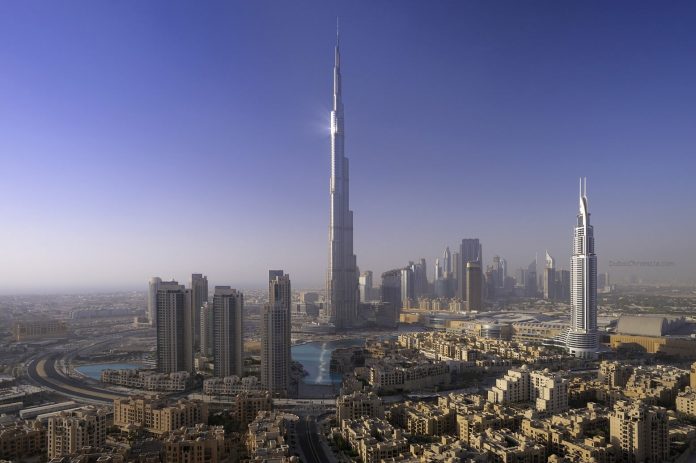
The real estate sector is a defining factor for the economic development and status of a city. Dubai is no exception. Over the past decade, the property market in the emirate saw many highs and lows. Today, it seems that the city has regained its old-days’ glamour. Still, fears of a 2008-2009 scenarios are often creeping in the picture. That is why, examining the 2014 trends in the real estate industry is more than essential for everyone interested in this sphere. The following tendencies will affect the global property market and define Dubai real estate trends too.
Rules set by sellers and not by buyers
Real estate prices are now decided by sellers. Buyers, on the other hand, have a little or no say at all on this matter. That is why, they may find it hard to put up with this rising trend. Homes now are priced to please sellers and property investors. Together with real estate agents and lenders, they try to squeeze buyers eager to buy before interest rates and residential property prices shoot up even further. Similar is the case with landlords and tenants in Dubai.
Shortly put, the strings in the real estate sector in 2014 will be pulled by property owners. In Dubai, in particular, the number of real estate industry participants who have the interest to drive the market upwards is so huge that unless some extraordinary event disrupts the whole world, nothing will change in that respect. Other factors, different than the greed for profits seem to have a little influence on the real estate market at present.
Real estate dependent on job growth
The pace of the job growth will greatly influence the recovery of the real estate market over the coming years. However, do not assume that this will have an immediate positive effect on the property sector. Quite the contrary! Salaries will continue to rise slower than predicted and than the inflation, which will partly hinder the recovery of the real estate industry. The working force will generally struggle to pay the rising rents and consumer prices. The majority of expats in Dubai will try to relocate to cheaper suburban areas or even cities such as Ajman and Sharjah.
Urban is the new suburban
In the recent past, suburban areas were generally more popular among buyers and developers. However, in 2014 this will finally change. Projects set in the heart of cities, like Business Bay in Dubai, will enjoy the most interest by buyers. That is because they offer central location advantages and already developed infrastructure. Do not expect the southern parts of Dubai to become extremely attractive to property investors just in a few months despite the World Expo 2020 prospects.
Younger people to get more active on the market
The generation of the people born in the 1980s, will participate more actively in the sector. Young people today tend to move to big cities in search for better education, higher salaries and more exciting lifestyle. In a transitional city like Dubai, expats aged bellow 30 represent the bigger part of the population. Companies prefer to employ younger graduates, while the general mass of employers finds younger unskilled labour more useful and investment worthy. Banks lend mortgages to younger applicants easier than to older ones. However, do not expect many young people to buy homes. They are more willing to rent than to invest, because buying a home in Dubai is an expensive and complicated process. On the other hand, renting offers flexibility for future choices.
Townhouses and large apartments market continue to have a hard time recovering
While small apartment sales have witnessed an impressive growth over the past two years, townhouses and large apartments still lack behind. Neither buyers nor investors show remarkable interest in investing in this type of properties. The trend will probably be preserved in 2014. High-end apartments have also become really hard to sell or even to rent out. Shining example is the Old Town Downtown Dubai where many high-end apartments are currently vacant due to the recently increased rents and selling prices.
Smaller cities will attract more developer’s attention
Until recently, developers saw large cities like Dubai as very attractive places to invest. However, next year, they will turn their heads to smaller regions. The reason – they offer plenty of still unexplored opportunities.
The popularity of high-rise apartment buildings will decrease
During the past decade high-rise buildings seemed like an attractive solution to many renters and property investors. However, this is expected to change in 2014 to some extent. The supply of these apartment buildings has increased so much that now greatly surpassed the demand. In addition, by now many people are convinced that living in high-rise towers is inconvenient as many different occupiers are stuck together and they often face problems with access, parking and poor infrastructure and service.
The global property market will undergo a number of interesting changes in 2014. However, it should be noted that the biggest of them always come unannounced. That is especially true for Dubai’s real estate sector. So, you should be ready for surprises.























![The Square at Nad Al Sheba Gardens Now Open hope tax season treated you well! Just checking in—ready to refocus on growing your business? I remember how we discussed scaling your [specific aspect of their business, e.g., online presence] but paused due to time constraints. We now offer a streamlined 6-month plan that delivers real results without adding to your workload. Let me know if you'd like to chat—I’d love to help you pick up where we left off!](https://www.dubaichronicle.com/wp-content/uploads/2024/11/The-Square-5-218x150.jpg)








